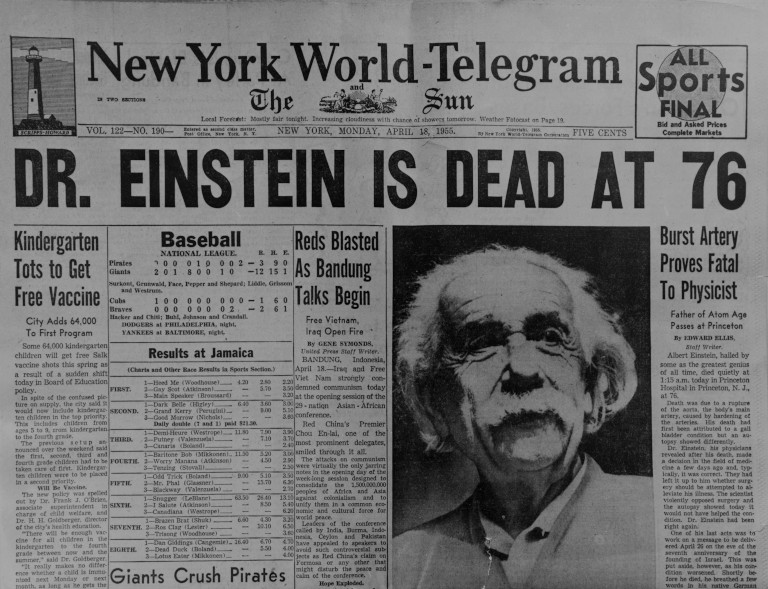Death

Goodbye
Einstein always had a lot of stomach problems. In 1948 he developed acute abdominal pain. Doctors found an aortic aneurysm, a bulge of the large blood vessel that carries blood to the cavity. They warned him t hat one day it could crack, which would probably kill him. That happened seven years later. He collapsed and was rushed into hospital. The doctors wanted to operate on him, but Einstein knew the chances of success were slim and refused. He said, "I've done what I can, it's time to go. I'll do it with dignity. " Albert Einstein died on April 18, 1955 in the hospital shortly after 1 p.m. Next to his bed was a scrap for a speech he was to give on Israel's Independence Day and an unfinished calculation for the unified field theory. His main interests were science and humanism until the very end.
Cremation
By the time the headlines reported Einstein's death, his body had already been cremated. According to Einstein's specific instructions, that happened during a small ceremony for his family and friends the afternoon after his death. The ashes were scattered in the Delaware River soon after, but first a routine autopsy had taken place. The pathologist, Thomas Harvey, did something extraordinarily strange. He removed Einstein's brain without permission from the next of kin. When Harvey was confronted with it later, he claimed that he had done it in the interest of science and Einstein would have had no objection to it.
The Brain
Harvey cut Einstein's brain into microscope sections. He sent it to brain researchers to look for the reason of an IQ of over 160, but only a few published their results. As if this disgusting act wasn't enough, Harvey turned out to have owned the brain for 43 years before eventually returning it to the hospital. Of the few scientific studies conducted, that of neuroscientists from McMaster University in Canada was the most interesting. Their study found that Einstein had a shorter groove in the parietal lobe than is common, a trait believed to be related to math skills. That little piece of information seems like a very small reward for dishonoring the remains of one of the greatest scientists of all time.